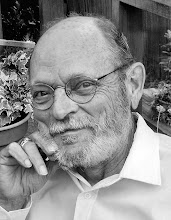Mort and I took our coffee to an iron table in the sunshine outside the café. I offered Mort a small cigar. “No thanks,” Mort said. “I gave that up almost fifty years ago when I married Aggie. Yep, and in those forty-nine years I’ve never seen anything like the state of the economy today. I’m a little young to remember the Great Depression.”
I said, “I only know what my folks’ generation told about it. My mom was in the Dust Bowl—Western Kansas. She went to California to work in ’34.”
“My dad worked in a tractor factory,” Mort said “He kept his job. But some of my uncles went without work for a few years—one of them got on with the WPA and another one rode the rails, working’ whenever he could for 25¢ a day.”
“It got more complicated in our lifetimes, Mort.”
Mort was in a lecturing mood. “It sure did, Hank. I was reading on the Net about those various investment instruments that’re out there now! The only thing is, what makes some of those things complicated is this: in the old days our parents didn’t hafta know about futures and derivatives and and swaps and hedges ‘cuz they never expected to strike it rich. Nowadays everybody expects to strike it rich.”
“Whaddya mean?”
“It’s like this. Our dads went to the local bank and talked to the manager about a loan, say for a car. The manager lived there in town. He knew your dad—and the neighbors—how much you made, how you paid your bills. So he’d make your dad a loan and your dad made the payments every month.”
I said, “Oh, I know what you mean. My folks used to save up to buy stuff like a new washing machine. I bought my first fishing rod on lay-away. A dollar a week, then I got my rod and reel in 15 weeks. Did your folks have charge accounts at the grocery store and gas station? Paid ‘em off every month, right? Mine did.”
“Yep. Well, trouble started when every day working folks got to believing the American Dream means they can have every damn thing they want right now.”
“I’d say so. Advertising made people think they couldn’t live without air freshener or deodorant or greeting cards or a new car every three years. So what’s your point, Mort?”
“Well, I guess it’s this: People forget ‘the devil in the details.’ Like sliding interest rates, fine print, adjustable rate mortgages, spreading themselves too thin to cover their monthly payments. They scurried around like squirrels in the fall leaves, trying to find new ways to debt-finance their living style. Using debt to finance a lifestyle is a real perilous idea. It’s like trying to finance a lifestyle at the casino unless you’re a good professional gambler.”
”So you’re saying people are living beyond their means. That’s what they called it in the old days—living beyond their means.”
“That’s part of it, Hank—but it goes deeper than that. Some of the eggheads call it ‘instant gratification.’ That’s what I meant by ‘right now.’”
“But there’s more to it than that, huh, Mort?”
“I think so. There’s this attitude of getting rich quick, too. It’s sorta like people are thinking all the time ‘If I can just win the Lotto . .’ or ‘I’ll just take a hundred dollars out to the casino—I know I’ll hit a jackpot this time—I’m due . . .’ But they never realize how much the odds are against them time after time.”
“Do you think that’s what people had in mind when they were buying houses and flipping them and then going together with others and buying more houses to flip?”
“A-course it is! Here were these weasels out there telling everyone how they made ten million dollars in real estate with no risk and making out like everyone could do it. Well, if you think about it, it’s stupid to think everyone can do it. If everyone could do it, it wouldn’t mean anything.”
I said, “What do you think happened to people’s thinking? How come so many folks think the world owes ‘em a living?”
Mort sipped of his coffee. “I think advertising and the popular culture—the media—make it look like the highlife is within reach of every working’ stiff out there. Spend, spend, spend—the result is everybody is trying to keep up with the Joneses, but the Joneses aren’t even real people, like your neighbors. They’re the families on the sitcoms. There’s real confusion between fantasy and reality. Folks don’t even really know their neighbors and talk to them—to know how hard it is for them, too.”
We walked toward our cars. “Imagine a world without yard sales and E-Bay,” I said.
“Yeah,” Mort said. “I have a friend who says whenever he’s in a mall, he thinks to himself, ‘Wow! Look at this huge place just packed with stuff that nobody needs!’”
I laughed. “See you next week, Mort.” He waved as he eased himself into his car and started it up.
Wednesday, May 27, 2009
Subscribe to:
Post Comments (Atom)


No comments:
Post a Comment